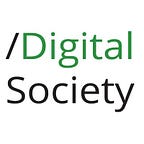Podcast transcript: Critical Analysis
This podcast is part of the UCIL Digital Society course from the University of Manchester. The story it relates to is hosted on Medium and can be TK found here.
In this podcast Dave Hirst introduces the topic — critical analysis.
TRANSCRIPT
DH: Hi. My name’s Dave and I am a Teaching and Learning Librarian in the library and co convenor of the Digital society course.
How we think, read and write critically is a key skill at University and relates directly to each assessment on this course.
I deliver training sessions on lots of different academic skills that are crucial for university level study. So that covers topics like academic writing, critical reading, referencing and all that stuff. I teach a face to face critical analysis session and I am interested in how we can transfer critical skills into the digital world and what that is going to look like.
In this theme week we are going to focus on a strategy to help you approach a source critically. This might be a video or some reading from the course or any course that you take at Uni. We’ll go through the steps you will take to be able to make judgements about how reliable and useful that information is. We’ll also practice articulating and sharing your own analysis of information afterwards in an online task. As part of this, you’ll generate critical questions and start to apply your critical lens to a source.
This session is positioned early on in your course because the skills we’ll use, critically analysing information, are going to be useful to you every week and every session.
You will get to pick one source on a topic relevant to Digital Society and practice critically responding to the content by using a software tool called hypothes.is
Hypothes.is allows you to annotate a text and critically engage with the content and there are instructions on this page and in Blackboard.
Right through this session, you’ll be contributing your own thoughts and critically analysing information. You’ll contribute through polls and comment streams, and together you’ll build a list of questions to get you started in forming a critical opinion of the source material.
I look forward to reading your thoughts and reflections on critical analysis.
Student Team : Now that you’ve heard a little bit about this topic, you’re ready to work through the Topic post which includes activities to help you join in the discussion. Engaging with all this content will help you prepare for the assessments. We look forward to hearing what you’ve got to say!
